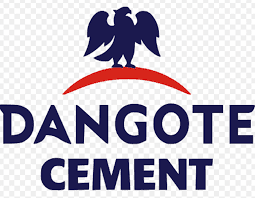For the past 16 months, inflation has continued its upward movement and in the process dragging more Nigerians into the hunger and poverty bracket; BENJAMIN UMUTEME writes.
It was not totally unexpected that inflation figures in the month of March will rise further. With the Ukraine –Russia war still raging leading to global supply chain disruption and other headwinds, it was not surprising that last week Saturday, the National Bureau of Statistics (NBS), in its Consumer Price Index report for the month of March, stated that Nigeria’s inflation rose to 22.04 per cent from 21.91 per cent in February.
According to the NBS, the rate represents a 0.13 per cent increase in headline inflation when compared with that of February.
The report further showed that food inflation trended upwards to 24.46 per cent in the month under review from 24.35 per cent in February.
Analysts say a combination of the cash crunch, high transport cost, and insecurity that prevented farmers from going to their farms were drivers of the inflation.
The statistics bureau stated that headline inflation was 6.13 per cent in the month under review compared to 15.92 per cent the previous month.
“This shows that the headline inflation rate (year-on-year basis) increased in March 2023 when compared to the same month in the preceding year (i.e., March 2022),” the NBS said.
The report further stated that food inflation in March 2023 was 24.45 per cent on a year-on-year basis; which was 7.25 per cent points higher compared to the rate recorded in March 2022 (17.20 per cent).
The bureau said the rise in food on- year on year basis was caused by increases in prices of oil and fat, bread and cereals, potatoes, yam and other tubers, fish, fruits, meat, vegetables, and spirits.
“On a month-on-month basis, the food inflation rate in March 2023 was 2.07 per cent, this was 0.16 per cent higher compared to the rate recorded in February 2023 (1.90 per cent).
“The average annual rate of food inflation for the twelve months ending March 2023 over the previous twelve months’ average was 22.72 per cent, which was a 3.50 per cent points increase from the average annual rate of change recorded in March 2022 (19.21 per cent),” it said.
“On a month-on-month basis, the Core inflation rate was 1.84 per cent in March 2023, up by 0.78 per cent from 1.06 per in February 2023.
“The average twelve months’ annual inflation rate was 17.41 per cent for the twelve months ending March 2023; this was 3.85 per cent points higher than the 13.56 per cent recorded in March 2022,” it said.
FG’s approach
In his view, the managing director, SD&D Management Limited, Gabriel Idakolo, told Blueprint Weekend that the government’s approach to tackling inflation has yet to yield the desired result.
According to Idakolo, the government’s ineffective economic policy is driving more Nigerians into the poverty bracket.
Statistically, poverty and unemployment levels are increasing daily at an alarming rate due to the ineffective economic policies of the government that has caused industries to reduce production due to energy insufficiency, exchange rate scarcity and challenges and high interest rates which have led to high cost of goods and services. The multiplier effect of this is reducing purchasing power and low sales.
“You cannot keep doing the same thing and expect a different result. The government’s approach to addressing inflation is inadequate because continuous increase in the MPR is not the only key to inflation reduction if other factors influencing inflation are left unattended,” he said.
He, therefore, urged the Central Bank of Nigeria (CBN) to look beyond monetary tightening and address critical issues of forex scarcity, removal of dual exchange policy and take targeted measures to strengthen the Naira.
“The federal government should also ensure greater transparency in the oil and gas sector and curb theft of crude oil. The revenue generated from crude sales if adequately utilised can reduce forex scarcity and increase activity in the production sector.”
Cost of living worsens
Speaking with this reporter, a political economist, Adefolarin Olamilekan, reiterated that the government’s policy has not been able to address inflation. He said Nigerians have not had it easy as inflation continues to rise as cost of living gets worse resulting in escalating hunger.
He said, “Without mincing words, the economic policy thrust of the government is not good enough to address inflation. For instance, the government’s economic diversification was targeted to address revenue shortage due to dwindling crude oil sales.
“However, its implementation was not to address our micro and macroeconomics challenges which as it roots cause over reliance on importation. A situation where the local manufacturing sector operates under burdensome cost, poor electricity, dilapidated roads and crippling forex have had their impact on the manufacturing sector. Multiple taxations are also suffocating SMEs in the informal sub sector.
“Arguably, the government’s policy has not been broad and strategic enough to bring down inflation uptick. Unfortunately, the approach of fiscal authorities to tackling inflation over the years has been dysfunctional. And this can be observed in the economic policy actions over the years. This can be seen also in the CBN action, especially in the discharge of monetary policy in fighting inflation.
“We must acknowledge the fact that on the economic angle monetary policy is a tool to address inflation. However it is not a perfect tool, particularly if we consider the peculiarity of our inflation features which is cost push and in-built inflation.
“While cost-push results from production and service cost transfer to the consumer.
In- built inflation results from a technical aspect of cost in line with the operations.”
What the authorities must do
“First, the CBN must acknowledge the inherent inflation features of the cost push. Although it has injected a lot into the real sector, a more pragmatic injection of funds must go to businesses that substitute importation.
“Also, a combination of monetary and fiscal parameters is required to address inflation; multiple taxes must be abolished while capital projects that would address our infrastructure challenges should get more attention.
“Lastly, the CBN must address shortcomings in its aggressive monetary stance in fighting inflation. This required the apex bank to review the impact of the policy on loans it gives out.”




